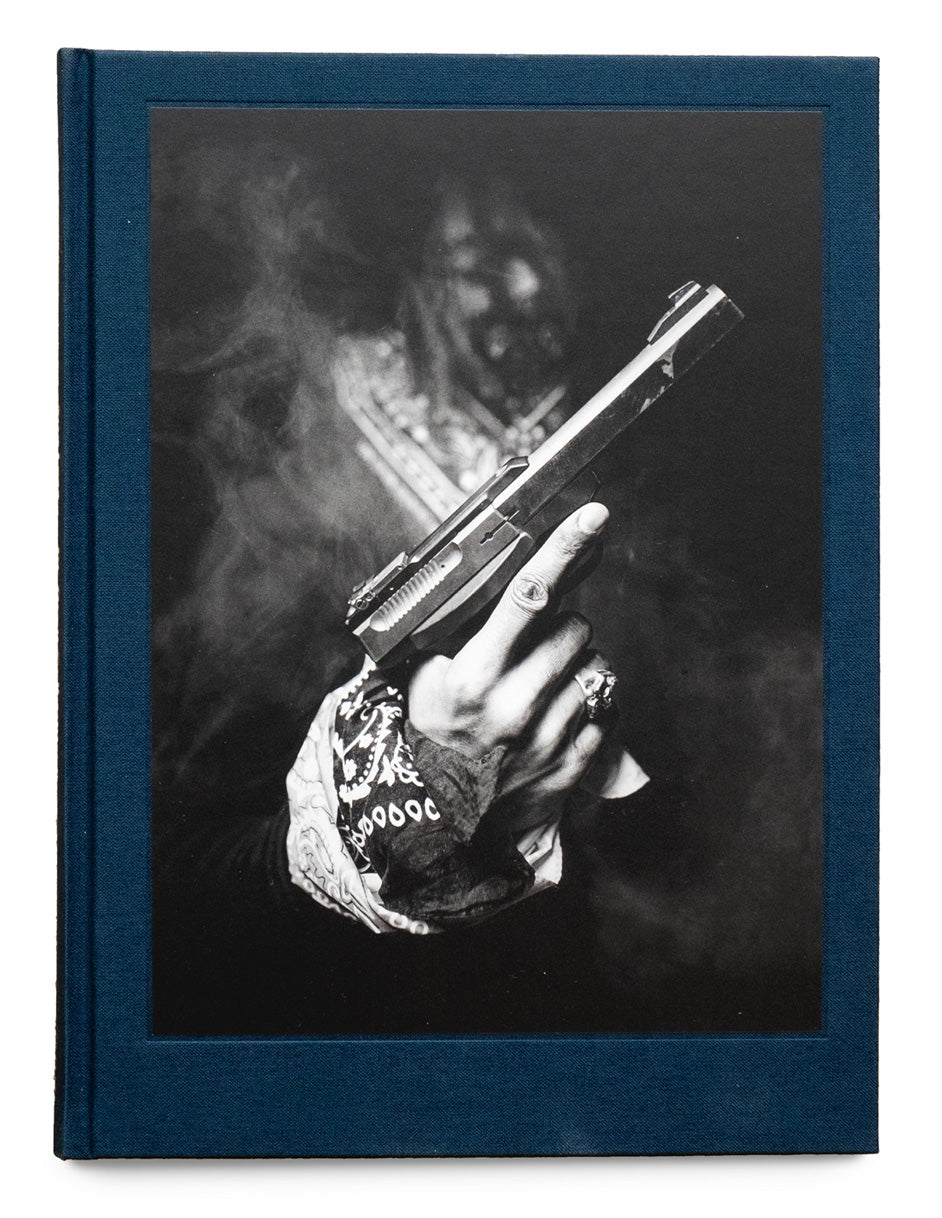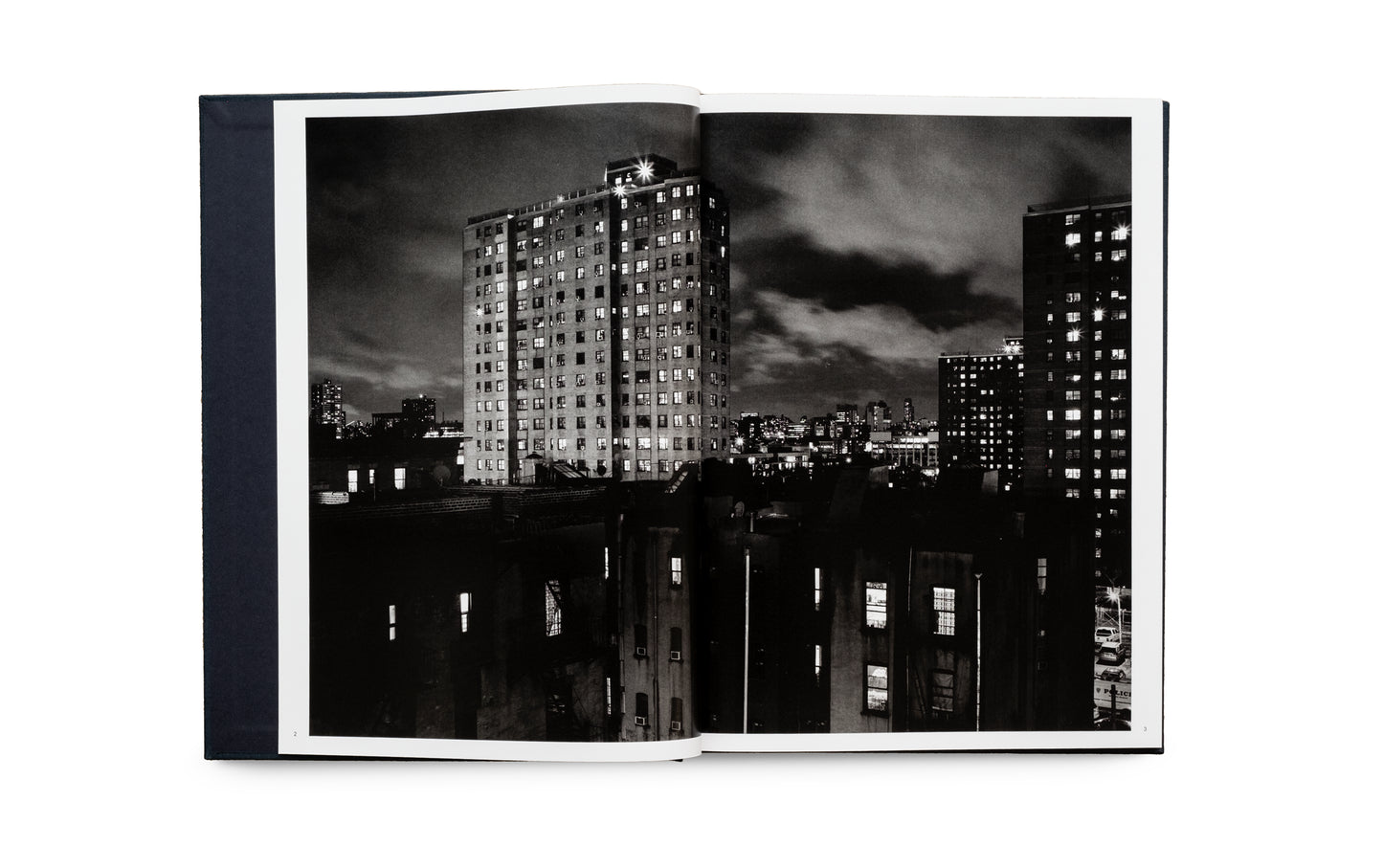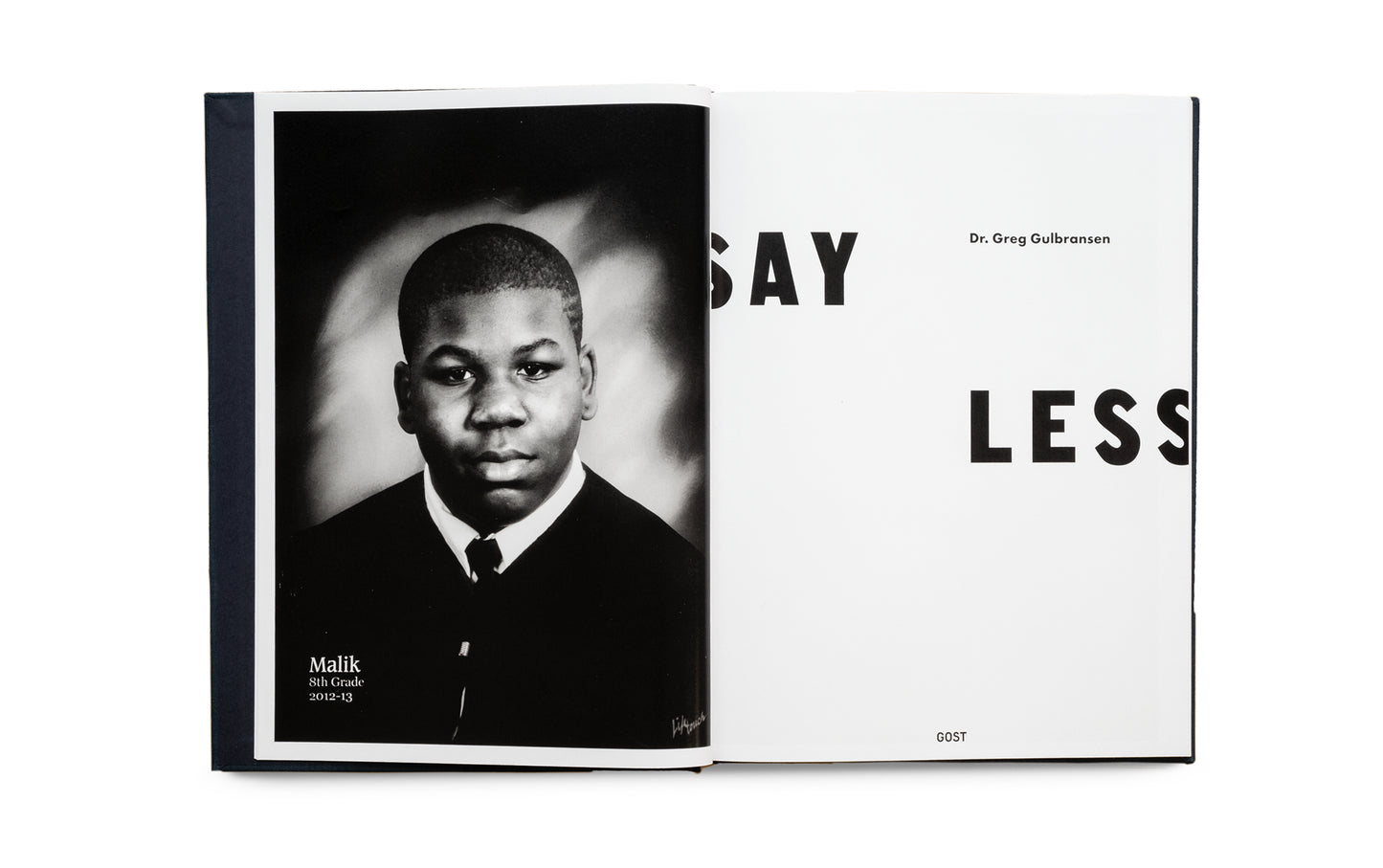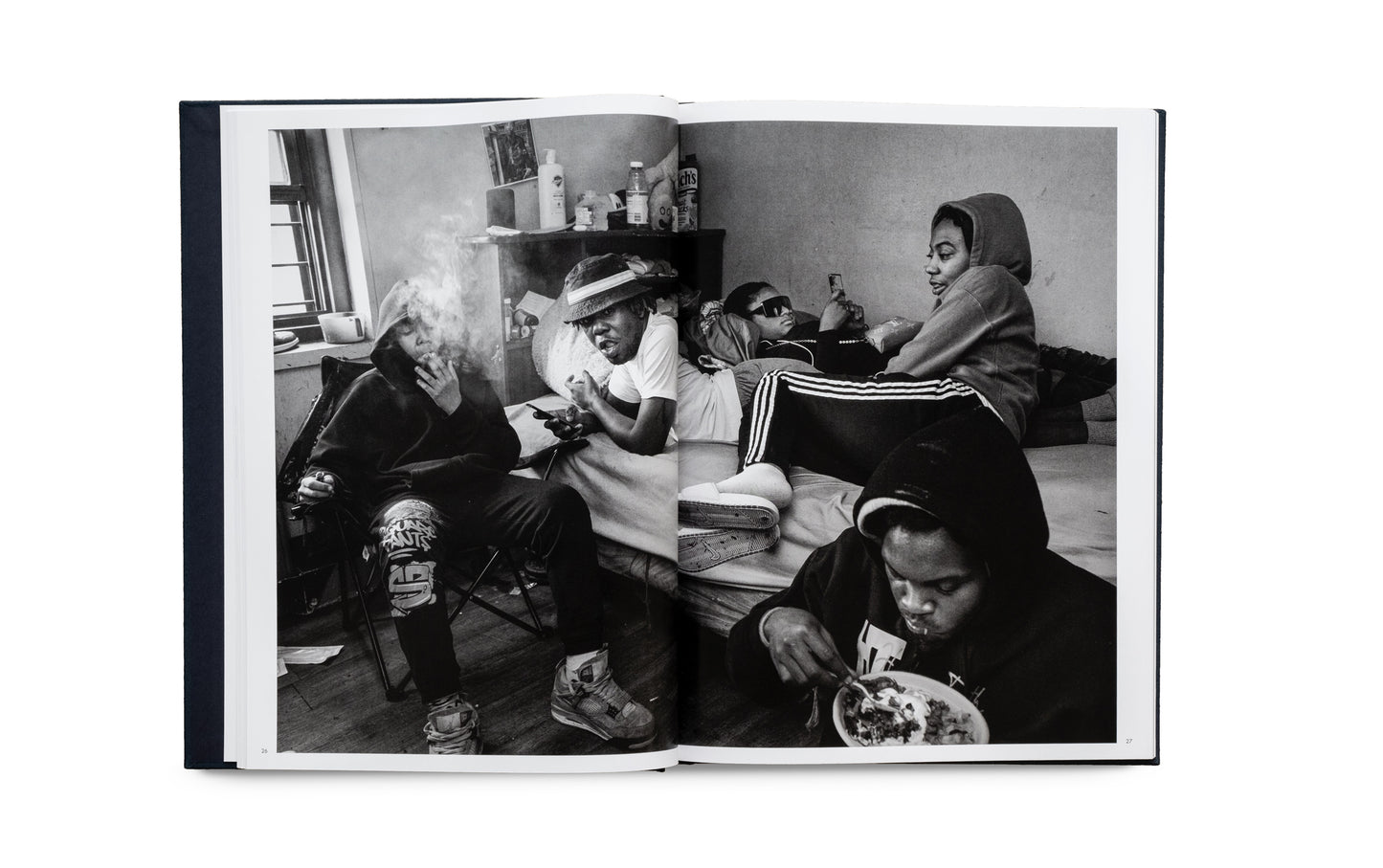Say Less
Say Less
by Greg Gulbransen
Couldn't load pickup availability
Over the course of three years, Greg Gulbransen photographed Malik, a set leader of the violent street gang, the Crips. Malik was shot and paralysed in 2018 by the bullet from a rival gang, and as a result his world now centres around his small Bronx apartment in New York, where he is cared for by his family and fellow gang members.
Gulbransen, a practicing doctor, had been photographing in the Bronx during his spare time and had got to know some of the local kids. He began to notice a lot of young men in wheelchairs with spinal injuries and was professionally curious. He was told they had all been shot. He wanted to speak to someone in a wheelchair and was introduced to Malik through a fellow Crip.
More about this book
More about this book
Published 19 August 2024
212 x 286 mm
160pp, 89 images
Hardback, clothbound cover with a tipped in image and silver foiling
ISBN 978-1-915423-36-8
Lucie Photo Book Prize 2024- Traditional Category Winner
Share






In the press
From the author
-
-
- Greg Gulbransen






